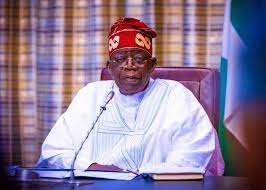1.2K
By Tracy Moses
President Bola Tinubu has taken a bold step to stimulate Nigeria’s industrial growth by banning the importation of foreign goods that can be produced locally.
The President also issued a directive restricting expatriates from handling jobs that Nigerian professionals and artisans can competently execute.
These decisions form part of a newly approved policy tagged the Renewed Hope Nigeria First Policy, aimed at repositioning the country’s economy through import substitution and local content promotion.
Speaking to journalists after Monday’s Federal Executive Council (FEC) meeting presided over by President Tinubu at the Presidential Villa, Minister of Information and National Orientation, Mohammed Idris, disclosed the far-reaching policy measures.
According to him, the new policy is designed to prioritise Nigeria in all aspects of government spending, procurement, and business operations, describing it as “a bold economic shift” akin to the “America First” policy introduced under former U.S. President Donald Trump.
“This policy is about putting Nigeria first in everything we do, especially in public procurement and economic decisions. It aims to create a confident and self-reliant business culture that directly benefits Nigerian industries and workers,” the Minister said.
To give the policy legal backing, the Attorney General of the Federation has been directed to prepare an Executive Order that will codify the framework into enforceable law.
As part of immediate implementation, the Bureau of Public Procurement (BPP) has been instructed to revise procurement guidelines to prioritise Nigerian-made products and indigenous service providers across all Ministries, Departments, and Agencies (MDAs).
The minister said the BPP will also maintain an up-to-date database of certified Nigerian suppliers, which MDAs must consult before making any procurement decisions.
“No MDA will be allowed to purchase foreign goods or engage foreign contractors for services readily available in Nigeria without obtaining a formal waiver from the BPP,” Idris stated.
He added that procurement officers currently working within MDAs will be recalled back to the BPP to ensure better monitoring and prevent compromise or undue influence.
Furthermore, in cases where foreign expertise is indispensable, the government will insist on clauses that ensure technology transfer, local manufacturing, or capacity building as part of contract terms.
Idris reaffirmed that the Nigeria First policy will serve as a cornerstone of the Tinubu administration’s broader economic plan, particularly in achieving industrialisation and sustainable local economic development.



